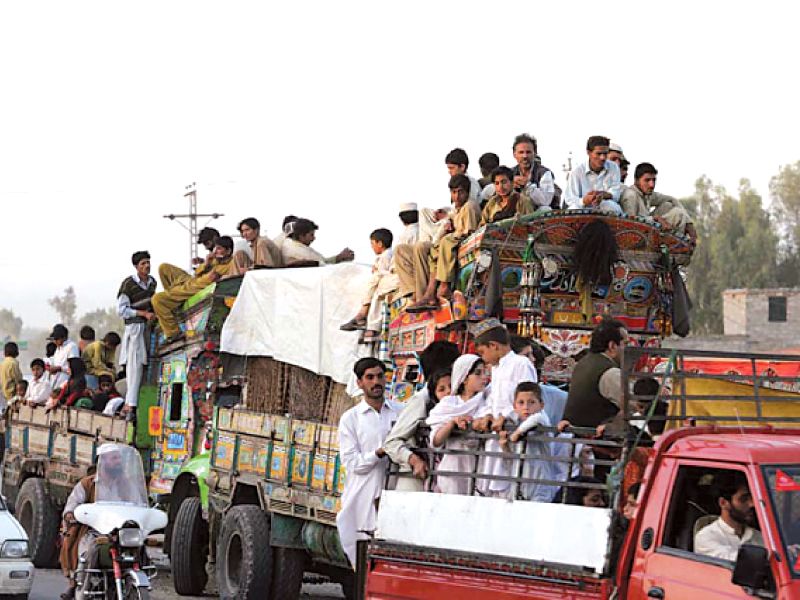
PESHAWAR:
As the Pakistan army battles the combined forces of the Tehreek-e-Taliban (TTP) and the Lashkar-e-Islam (LI) in the Tirah valley, the people who call this battleground home have little choice but to flee for their lives.
One such refugee is 70-year-old Yar Muhammad Khan, who reached Peshawar along with 40 family members after facing immense hardships on the way, with some of his family members falling sick because of the severe cold.
“Our houses had been torched by militants of Mangal Bagh’s Lashkar-e-Islam and the TTP. We were forced to migrate to safer places in Kohat and Peshawar to save our lives, leaving our belongings behind in haste,” he lamented. Two of his family members suffered severe burns in the attack, after which they decided to leave the area.
This caravan of men, women and children reached Orhanga in the Orakzai Agency after a walk of three hours in steep mountains. From there, they finally hired two pickup trucks at a cost of Rs40,000 to get them to Peshawar.
They are only one among the thousands of families who were forced to flee from Tirah and await government assistance in Kohat and Peshawar.
According to the FATA Disaster Management Authority (FDMA), some 47,554 persons have been displaced, out of which 10155 are males, 15545 are females and 21854 are children. The list of the displaced keeps growing, and it seems that there is little chance any of them will see their homes again soon.
The last few days have seen up to 110 militants and some 23 security personnel killed according to an official ISPR statement. The military’s offensive began after TTP and LI fighters defeated their Ansarul-Islam (AI) rivals to gain control of the valley.
Khan’s family and others like them waited for 20 days, housebound, hoping for a brief halt in the battles that raged around them. “We were prisoners in our own houses,” he said. During this time, it was unsafe for them to step out of their homes and life in the area was at a standstill due to the fighting. When their own homes became targets, they had no choice but to try and escape.
“We have our own businesses and some of my brothers work as farmers in Maidan village,” he says, still trying to come to terms with the madness that turned them into refugees.
Their ordeal didn’t end on reaching Peshawar. Presently, they are temporarily living at a relative’s home in Badhbera and are searching for rented houses.”The rent is unaffordable. We have no source of income and cannot pay more than Rs3000 to 4000 in rent,” he says.
He complains that no government official has asked them about their difficulties. “We request the government to help us and provide us basic facilities,” he pleads.
Khan said that they have not been registered and haven’t received anything from the government or non-profit organisations. When asked, he replies that they cannot live in the already over-crowded and congested Jalozai Camp because there are a lot of problems and the camp is not secure any more.
After the recent blast
Fata Development Authority’s assistant director for operation and relief, Farman Ali Khliji, said that 5,479 families have been enlisted so far. He said that 520 families have been accommodated in the New Durrani Camp in Kurram Agency and the remaining have settled in Peshawar and Kohat. “Registration has started in the New Durrani Camp and the process is underway for registration of the other displaced families in Peshawar and Kohat soon,” says Khilji, adding that after registration, authorities provide these families with cooked food, tents, and non-food items.
The FDMA says it has provided 2776 vehicles used for free transportation of the displaced families and have vaccinated 5757 children.
Meanwhile, the United Nations High Commissioner for Refugees (UNHCR) spokesperson Dunya Aslam Khan confirmed that they had started registrations in New Durrani Camp and that 423 families have been registered in the New Durrani Camp while 939 families are living out of camp in Kurram Agency.
“I have never faced such a horrific situation in my life,” says another Internally Displaced Person (IDP), Rasool Bacha Afridi. “What is our fault that we are caught in a war between militant groups?” he asks, adding that a large number of common people who have no affiliation with any group were killed, including his brother’s only son. Presently, he lives in a rented house in Pishtakhara with 12 family members. He pays Rs7000 for this privilege, and wonders what will happen when he runs out of money. For him, and thousands like him, returning home is simply not an option.
(Read: Tirah Valley battles)
Published in The Express Tribune, April 11th, 2013.
COMMENTS (2)
Comments are moderated and generally will be posted if they are on-topic and not abusive.
For more information, please see our Comments FAQ






































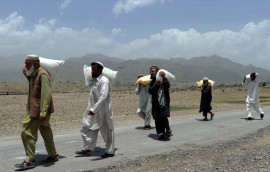

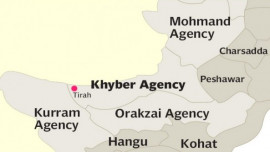



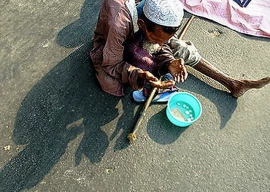

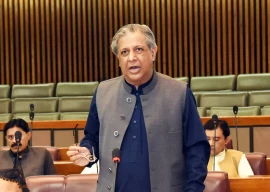














That's why i wait for a leader who just does not shout out for votes but voluntarily help these refugees! We want a leader not a politician.
The issue of terrorism has been in this area for eons. Stubborn hardship, revenge killing, tribal rivalry and a host of other reasons, is the lot of this area. The caretakers have to act now for their welfare without excuses for a negligent and a languid approach. This is literally the time for the political government to get serious. This has, is, and will remain a NATIONAL ISSUE, if we are to take our existence seriously. The old guard that refuses to develop the country or move over can give no more excuses to justify their positions. Their duplicitous character is now in the open. FATA and KP have to see development at a fast pace with other parts of the country being concomitantly developed. Salams